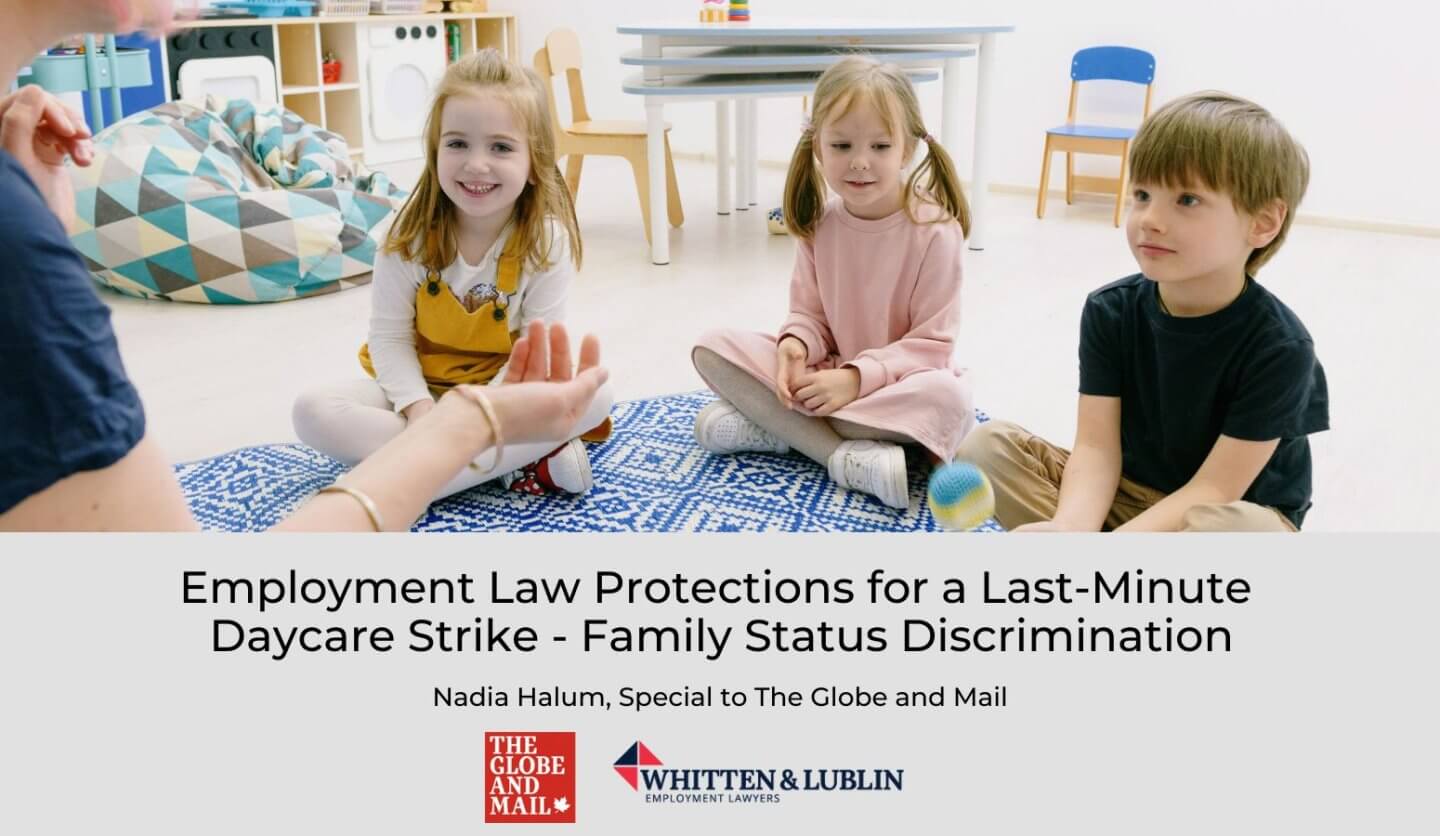
Employment Law Protections for Parents Affected by Last-Minute Daycare Strike
The question
My child’s daycare was closed because of a last-minute daycare strike so I had to stay home from work. I let my employer know the day before about not being able to come to work. But they’ve still written me up for the short notice of missing a shift because they said I had enough time to arrange alternate care. I think this is unfair. What course of action can I take to challenge this? Are there any legal grounds or protections available to me as a parent?
The first answer
Nadia Halum Arauz, senior associate, Whitten & Lublin Professional Corporation, Toronto
All Canadian provinces and territories have human rights legislation which prohibit discrimination on the basis of family status. This means that every employee has a right to equal treatment without discrimination because of family status, which is typically defined as being in a “parent-child” relationship.
Discrimination on the basis of family status can arise if an employer fails to accommodate a parent’s responsibilities with respect to their child, or if an employee who is a parent is treated differently than their peers, and the reason for the differential treatment is related to their status as a parent. Both situations may be at play here. Employers have an obligation to accommodate the employee’s caregiving obligations unless the accommodation would result in undue hardship for the employer, which is a very high threshold for an employer to meet. Secondly, if there are circumstances where short notice for missing a shift is acceptable (such as a sudden illness/injury suffered by an employee) then to discipline an employee for giving short notice in a similar urgent matter could also give rise to family status discrimination.
Employers must also be wary of the concept of “adverse discrimination” which occurs when an employer applies a policy that on its face, treats everyone equally, but actually has an adverse effect on a protected group. For example, even if there is a policy that all short-notice absences are met with disciplinary action, while this rule may seem objective and seemingly neutral, it may have an adverse impact on an employee who must provide short notice for an absence that is outside of the employee’s control.
Finally, some provinces have statutorily protected leaves of absence that cover these particular circumstances. For example, in Ontario, an employee is entitled to an unpaid leave of absence of three days because of an urgent matter that concerns certain family members, including a child, step-child or foster child.
If you are uncertain about your legal rights or the legal implications of being in any form of workplace relationship, you should speak with a lawyer. In any of these situations, the employment lawyers at Whitten & Lublin will be in your corner. We have particular experience in this area of law and will help you to navigate through this very complex situation. Contact us today online or call us at 416-640-2667.



